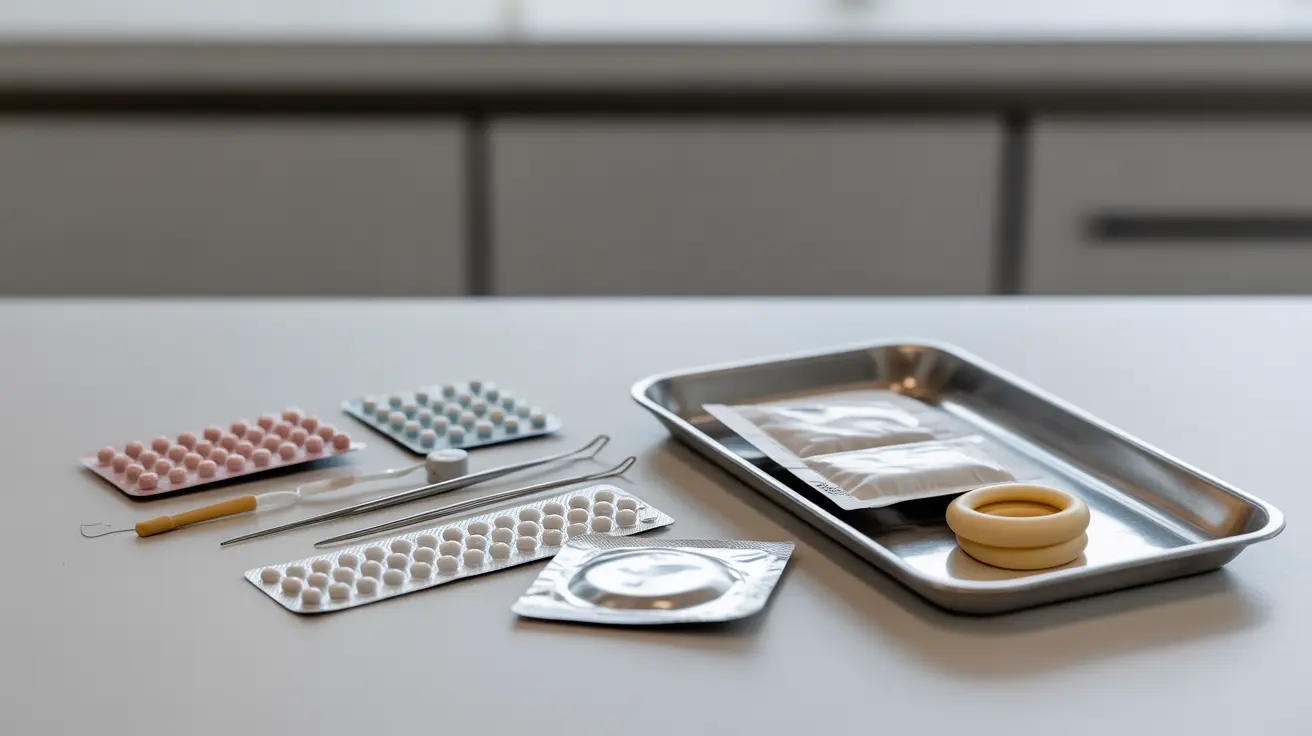Understanding your birth control options and using them correctly is crucial for preventing unplanned pregnancy. Whether you're sexually active or planning to be, knowing the most effective methods and what to do in various situations can help you make informed decisions about your reproductive health.
This comprehensive guide will explore various birth control methods, emergency options, and important steps to take when you want to ensure pregnancy prevention. We'll also discuss what to do if you miss a dose and when to take pregnancy tests for accurate results.
Most Effective Birth Control Methods
Several highly reliable birth control methods are available when used correctly:
Long-Acting Reversible Contraceptives (LARCs)
LARCs offer the highest effectiveness rates among reversible methods:
- IUDs (99.9% effective)
- Hormonal implants (99.95% effective)
- Injectable contraception (94% effective with perfect use)
Daily Contraceptive Options
These methods require consistent daily use:
- Birth control pills (99% effective with perfect use)
- Vaginal rings (99% effective when used correctly)
- Contraceptive patches (99% effective with proper use)
Emergency Contraception Options
If you've had unprotected sex or experienced birth control failure, emergency contraception can help prevent pregnancy when taken promptly:
Plan B and Similar Options
Over-the-counter emergency contraceptive pills work best when taken within 72 hours of unprotected sex, though they may be effective up to 5 days after.
Copper IUD
A copper IUD can be inserted up to 5 days after unprotected sex and serves as both emergency contraception and ongoing birth control.
Handling Missed Birth Control Pills
If you miss a birth control pill, take these steps:
- Take the missed pill as soon as you remember
- Continue taking your remaining pills as scheduled
- Use backup contraception for 7 days
- Consider emergency contraception if you've had unprotected sex
Pregnancy Testing Guidelines
For the most accurate results when taking a pregnancy test:
- Wait until at least one day after your missed period
- Use first-morning urine for best results
- Follow test instructions precisely
- Consider retesting in a few days if the result is negative but your period hasn't started
Using Multiple Birth Control Methods
Combining contraceptive methods can provide additional protection:
- Condoms with hormonal birth control
- Spermicide with barrier methods
- Fertility awareness with barrier methods
- Track your cycle while using other methods
Frequently Asked Questions
What are the most reliable birth control methods to make sure you are not pregnant?
The most reliable birth control methods are long-acting reversible contraceptives (LARCs) like IUDs and implants, with over 99% effectiveness. Birth control pills, patches, and rings are also highly effective when used perfectly.
How can I use emergency contraception to prevent pregnancy after unprotected sex?
Take emergency contraceptive pills as soon as possible within 72 hours of unprotected sex, or have a copper IUD inserted within 5 days. The sooner you take action, the more effective these methods will be.
What should I do if I missed a birth control pill and want to avoid pregnancy?
Take the missed pill immediately, continue your regular schedule, and use backup contraception for 7 days. If you've had unprotected sex, consider emergency contraception, especially if you've missed multiple pills.
When is the best time to take a pregnancy test to confirm if I'm pregnant or not?
Take a pregnancy test after missing your period for the most accurate results. Using first-morning urine and waiting at least one day after your missed period will provide the most reliable outcome.
Can using two birth control methods at the same time reduce the risk of pregnancy?
Yes, using two different birth control methods simultaneously can provide additional protection against pregnancy. Common combinations include condoms with hormonal methods or spermicide with barrier methods.




